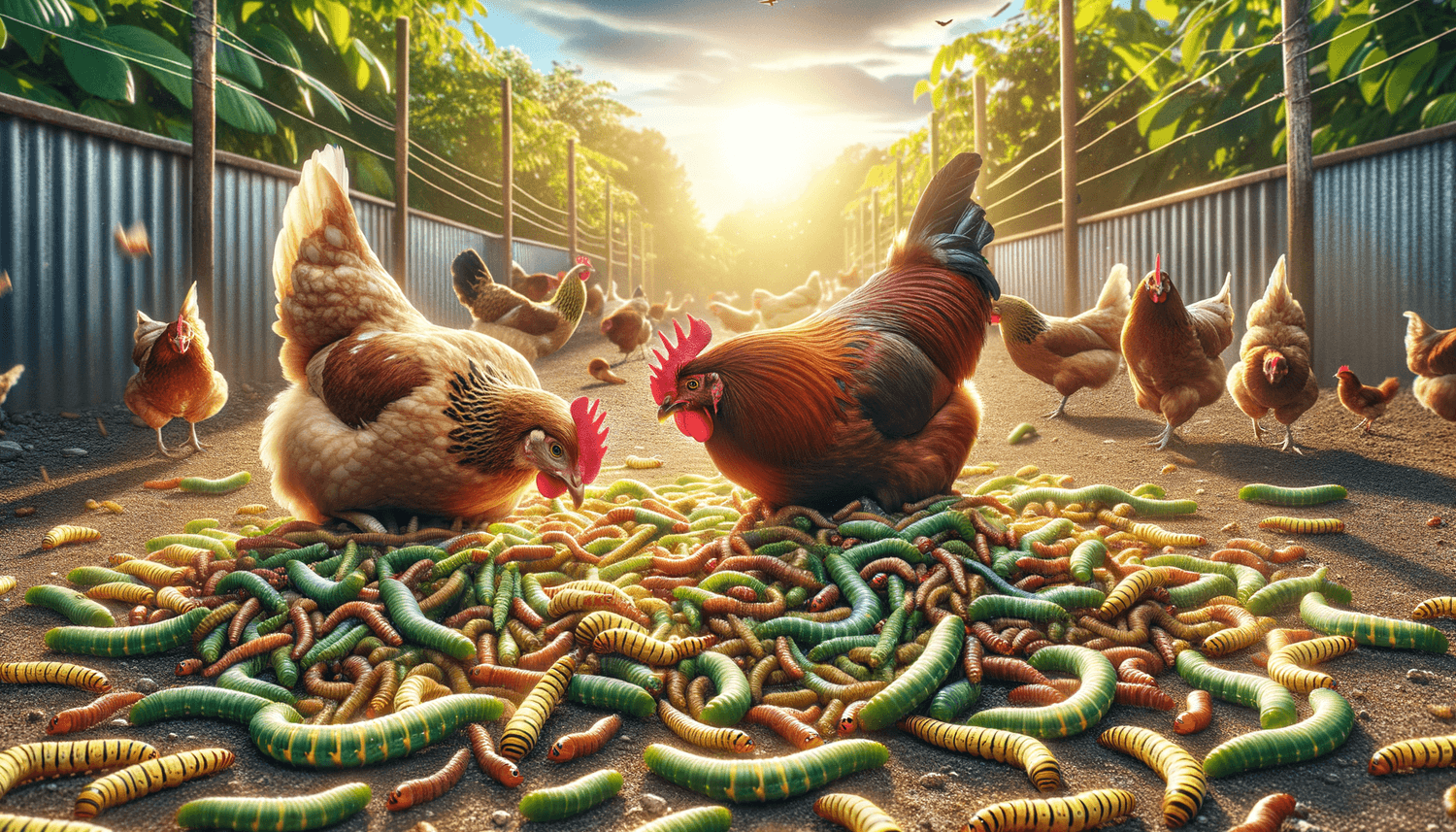Yes, chickens can eat caterpillars. Caterpillars can be a natural part of a chicken’s diet since they often consume various insects while foraging. However, it is essential to ensure the caterpillars have not been exposed to pesticides, which could be harmful to the chickens. Additionally, certain caterpillar species may be toxic if they have consumed poisonous plants, so identifying the caterpillar type is a crucial safety step.
Quick Summary
- Chickens can eat caterpillars.
- Caterpillars provide a source of protein which is beneficial for chickens but must be non-toxic and pesticide-free.
- The key benefit is the high-protein content; the risk is potential toxicity from certain caterpillar species or from pesticide exposure.
- A recommended feeding guideline is not to intentionally feed caterpillars to chickens, but allowing chickens to forage for them naturally.
Overview of Caterpillars
Caterpillars are the larval stage of moths or butterflies and are found in various environments. They are rich in protein, which is crucial for the growth and development of chickens. Additionally, caterpillars contain fats and other nutrients that can be beneficial to poultry in moderation.
Benefits and Risks of Caterpillars for Chickens
Feeding caterpillars to chickens can offer benefits such as providing a high-protein snack which is helpful for egg production and feather growth. However, the risks involve the potential ingestion of toxic substances if the caterpillars have been feeding on poisonous plants or have been exposed to pesticides.
Feeding Guidelines
When it comes to feeding chickens caterpillars, it’s best to let chickens find them naturally during their foraging activities rather than providing them as a planned part of their diet. This ensures they consume a varied diet and reduces the risk of ingesting harmful substances.
Alternatives
If caterpillars are not recommended for a particular flock due to concerns about toxicity or pesticides, safer alternatives include commercially raised insects like mealworms or crickets, which are widely available and safe for chicken consumption.
Expert Opinions
Poultry nutritionists and veterinarians often suggest offering a variety of protein sources to backyard chickens. Insects like caterpillars can be a part of this variety, as long as they are safe and toxin-free. Academic studies and authoritative poultry resources generally support the inclusion of insects in a chicken’s diet for their nutritional value.
Frequently Asked Questions
After learning about the prospects of feeding caterpillars to chickens, several questions might come to mind. Here are answers to some common inquiries related to this topic.
Are all caterpillar species safe for chickens to eat?
Not all species are safe; some caterpillars may be poisonous due to the plants they’ve consumed or their own natural toxins. It’s essential to identify the caterpillar species and be certain they are not harmful before allowing chickens to ingest them.
How do I prevent my chickens from eating toxic caterpillars?
Restrict chickens to a safe and controlled area where you can oversee what types of insects are available to them. Avoid areas where toxic plants grow and use organic methods in your garden to reduce the chances of pesticide exposure.
Can chicks eat caterpillars as well?
Chicks can eat caterpillars, and they can be a good protein source for growth. Nevertheless, special caution should be taken to ensure the caterpillars are small enough to prevent choking and are indeed non-toxic and pesticide-free.

















